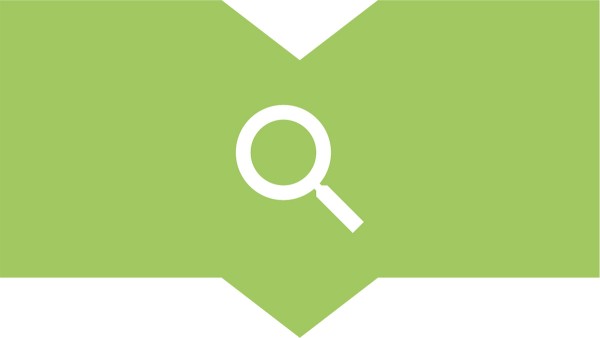Sustainability
Sustainability in all its dimensions is a central component of our corporate strategy. As a leading motion technology company Schaeffler considers sustainability as a holistic, overarching topic and assumes ecological and social responsibility throughout the entire value chain. We want to face up these challenges together with our business partners. Our aim is to make the supplier network transparent in order to identify and minimize risks at an early stage. In this way, we also meet the requirements and expectations of our customers and other stakeholders together.
- Developing supply chain sustainability in partnership
- Business Partner Code of Conduct
- Sustainability self-assessment
- Handling of Conflict Minerals and Critical Raw Materials
- Human Trafficking Policy
- Statement on respect for human rights
- Supplier training and action guide of BMAS
- Social Audits according to RSCI and RBA standards
- Climate protection and energy efficiency
- Carbon Border Adjustment Mechanism
Developing supply chain sustainability in partnership

Every business relationship is based on the expectations described in the business partner code.

We conduct a sustainability-related risk assessment of our suppliers.

We reduce the identified risks through global standards, assessments, and audits.

Self-Assessments provided by our suppliers give us a more detailed insight into their sustainability performance.

In sourcing decisions, we take the sustainable actions of our suppliers into account.
Business Partner Code of Conduct
The contents addressed to us within the framework of legal requirements and the expectations of civil society must also be addressed to you, our business partners. This is done by means of our Business Partner Code, the content of which is expressly taken as a general basis for every business relationship.

Sustainability self-assessment

To understand and develop the sustainability performance of identified suppliers, we use the standardized Self-Assessment Questionnaire (SAQ) on sustainability from the Drive Sustainability initiative. Suppliers selected for this purpose receive an invitation via NQC Ltd. to complete the questionnaire on the SupplierAssurance platform. If your company is already registered on NQC Ltd., we look forward to hearing from you so that we can view your SAQ.
FAQ – Supplier Sustainability Self-Assessment Questionnaire (SAQ)
Guideline for improvement of SAQ-Score
This guideline provides you an approach for the improvement of your SAQ-Score as well as an exemplary prioritization of topics.
Handling of Conflict Minerals and Critical Raw Materials
Schaeffler does not directly source any of the minerals concerned for its value creation but is aware that conflict minerals may occur in the supply chain. Schaeffler therefore demands of itself and its suppliers that all Schaeffler products are free of minerals whose trade is used directly or indirectly to finance conflicts in states or which originate from mining activities in conflict or high-risk areas.
Business Partner Code of Conduct
Against this background, Schaeffler requires responsible sourcing of these minerals in its supplier network and refers to the guideline "OECD Due Diligence Guidance for Responsible Supply Chains of Minerals from Conflict Affected and High Risk Areas" for this requirement.

Schaeffler expects from the suppliers identified as relevant for Conflict Minerals Compliance to report regarding the presence of Conflict Minerals on an annual basis, using the globally accepted format – RMI CMRT Reporting Template.
Procedure/process flow | Conflict Minerals & Critical Raw Materials Reporting
The latest version of the reporting template can always be downloaded from the Responsible Minerals Initiative website - Conflict Minerals Reporting Template (responsiblemineralsinitiative.org)
Human Trafficking Policy

Almost every country in the world is affected by human trafficking, whether as a country of origin, transit or destination for victims. Therefore, Schaeffler Group pays special attention to human trafficking.
The Human Trafficking Policy describes fundamental principles and measures to prevent forced labor and human trafficking. The policy applies to all areas of our company. We request our business partners and their supply chains to implement effective measures to prevent forced labor and human trafficking and to regularly monitor their effectiveness.
Statement on respect for human rights
As an internationally operating company, Schaeffler is aware of its social responsibility and is therefore unequivocally committed to respecting human rights throughout its entire value chain. Our comprehensive approach includes not only our own business activities, but also all stakeholders along the value chain, such as suppliers and business partners. The aim is to identify any violations and address them through appropriate measures - if necessary, up to and including the termination of business relationships. The company's own voluntary commitment including a description of the salient human rights issues, processes and measures are set out in the Human Rights Statement.
Supplier training and action guide of BMAS
Continuous joint development can only be successful if we have a common understanding of requirements and the background to them. Within the framework of the German Act on Supply Chain Due Diligence Obligation, it is your joint responsibility to use this free offer after registering as a Schaeffler supplier in order to better understand the Schaeffler requirements.
As a further way of use, we also see a targeted binding recommendation of training participation, for example, if we agree on potential improvements with you based on our risk analysis sustainability (Risk Exposure Sustainability or Self Assessment Questionnaire). The trainings include a learning success check at the end.
To use our free training offer, please contact purchasing-sustainability@schaeffler.com and we will send you information on how to register.

Instruction manual BMAS
The Automotive Industry Dialogue developed the action guides for the five core elements of human rights due diligence (policy statement, risk analysis, measures, reporting and grievance mechanism).
They are self-contained guides and fully address the requirements of the National Action Plan (NAP). In addition, the requirements of the LkSG are taken into account and identified separately. The implementation-oriented action guides act as a toolbox and guideposts in the individual and ongoing process of implementing human rights due diligence.
The instructions for action are available for download: Download instructions
Social Audits according to RSCI and RBA standards

Schaeffler is member of the Responsible Supply Chain Initiative (RSCI), a voluntary assessment standard developed under the VDA governance for the automotive industry. It evaluates the conformity of an assessed location to the RSCI Assessment Requirements with regards to social compliance as well as occupational safety and environmental protection
The RSCI Program is a standardized assessment and exchange mechanism for verifying the social compliance performance along the automotive supply chain and for mutual recognition of results. It has been developed based on the needs of the automotive industry with the approach to be more user friendly to small and medium-sized companies that strive for more sustainability in their supply chain, too.
Schaeffler is member of the Responsible Supply Chain Initiative (RSCI), a voluntary assessment standard developed under the VDA governance for the automotive industry. It evaluates the conformity of an assessed location to the RSCI Assessment Requirements with regards to social compliance as well as occupational safety and environmental protection
The RSCI Program is a standardized assessment and exchange mechanism for verifying the social compliance performance along the automotive supply chain and for mutual recognition of results. It has been developed based on the needs of the automotive industry with the approach to be more user friendly to small and medium-sized companies that strive for more sustainability in their supply chain, too.
Register via: RSCI-Online
Climate protection and energy efficiency
Schaeffler focuses on energy efficiency, the use of self-generated and purchased renewable energy, and actions to transition from fossil fuels to renewable energy sources. With these actions, Schaeffler supports its climate protection targets and assumes responsibility towards society and future generations. Schaeffler recommends that its business partners set science-based targets to reduce emissions and switch to renewable energy, defined in terms of time, and aligned with the Paris Agreement. Besides their own operations, business partners should also take action to drive decarbonization in their supplier chain.
In the guide below, suppliers can find more information on how to manage and reduce emissions effectively:

Calculation of emissions
Climate protection is closely related to the amount of CO2e emissions emitted into the atmosphere. A significant proportion of the CO2e emissions of our products are already caused in the supply chain and are referred to as Scope 3 upstream emissions. We therefore expect our suppliers to provide transparent and comprehensible information in this context.
In the Schaeffler PCF Framework for Suppliers, minimum requirements and standards for the calculation of product carbon footprints are outlined based on the ISO14067.
The following excel template can be used as a form of documentation to provide details on the calculation of the product carbon footprint.
Renewable Electricity
For Schaeffler, purchasing renewable electricity as well as expanding the self-generation of renewable electricity represents a key action to reduce emissions. Due to the great potential of this emission reduction lever, the Schaeffler Group encourages its suppliers to transition to 100 % renewable electricity in their production sites.
The supplier letter on renewable electricity explains the background and details of this initiative.
The following training slides provide additional information on the topic. In case of any further questions, suppliers are asked to contact their respective buyer at Schaeffler.
Carbon Border Adjustment Mechanism

On May 17, 2023, the European Union implemented the Carbon Border Adjustment Mechanism (“CBAM”), which imposes a carbon price on carbon-intensive products imported into the EU, equivalent to the costs faced by EU manufacturers under the Emission Trading Scheme. CBAM covers products such as iron, steel, cement, aluminum, fertilizers, electricity, and hydrogen. EU importers must report the quantities and embedded greenhouse gas emissions of these goods and then acquire corresponding CBAM certificates. For Schaeffler to fulfill its obligations under the CBAM regulation, cooperation from partners is essential.
Please see the following guideline for more information on CBAM and our processes: